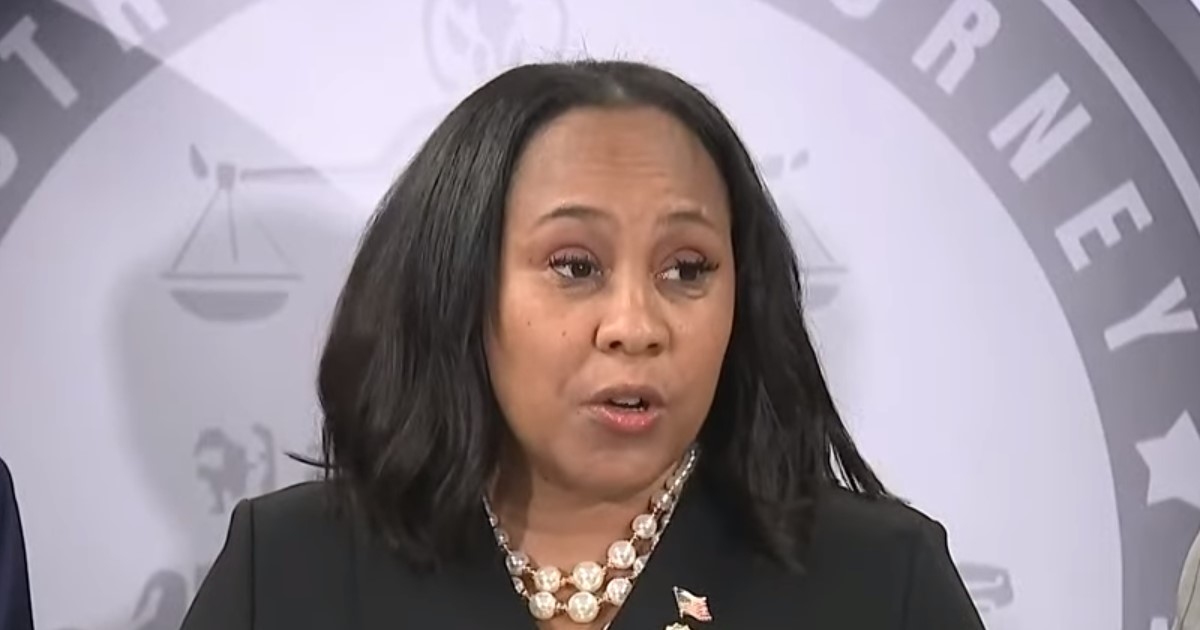GOP Rep. Mace, dozens of other House Republicans, say they'll vote 'NO' on debt limit deal
A number of House Republicans are less than thrilled with the debt limit deal reached over the weekend between House Speaker Kevin McCarthy (R-CA) and President Joe Biden's White House.
That includes Rep. Nancy Mace (R-SC), who announced on Tuesday that she will be voting "NO" on the so-called Fiscal Responsibility Act of 2023 whenever it comes to the House floor this week, the Washington Examiner reported.
The House is expected to vote on the measure on Wednesday, likely followed shortly thereafter this week by the Senate, in order to get the legislative package signed into law prior to June 5, the new date by which Treasury Sec. Janet Yellen has warned the nation could default on its debt and obligations if nothing is done.
Rep. Mace is a firm "NO" on debt limit deal
In a Twitter thread posted on Tuesday morning, Rep. Mace wrote, "Washington is broken. Republicans got outsmarted by a President who can’t find his pants. I’m voting NO on the debt ceiling debacle because playing the DC game isn’t worth selling out our kids and grandkids."
Over the course of the 18-tweet thread, the congresswoman laid out some of her concerns about the deal, first and foremost that it "normalizes record high spending started during the pandemic" by using the new "emergency"-level spending of around $6 trillion as the new "baseline" for all future spending as opposed to the prior pre-pandemic annual spending level of around $4 trillion.
She also took issue with the fact that the deal merely suspends the debt limit for two years instead of setting an actual ceiling, that the touted "clawback" of unspent COVID relief funds and IRS appropriations are minuscule and not guaranteed, that strengthened work requirements for some welfare programs are offset by the expansion of other welfare programs, and that annual spending caps are meaningless as they can be waived by the administration in the coming years.
Mace wrote, "63% of Americans want Congress to cut spending as part of a debt ceiling deal. This bill doesn’t do that. Unacceptable," and concluded, "Washington is, was and always will be lousy at responsibly spending your tax dollars. That won’t change unless we demand change."
The Fiscal Responsibility Act of 2023
According to the Associated Press, the Congressional Budget Office issued a preliminary projection of around $1.5 trillion in deficit reduction over the next decade -- albeit only if the annual spending caps remain in place for the duration of the six-year plan, which seems unlikely given the reality of congressional spending.
Indeed, in exchange for a suspension of the debt limit until January 2025, federal spending will remain flat for one year and then grow at a 1 percent rate each year after that, though the spending cap is not enforceable after 2025, meaning Congress could exceed the allowed growth rate, to say nothing of the administration's ability to waive the caps as well.
In the end, the outlet suggested that the negotiations had given both Speaker McCarthy and President Biden some "wins" that they could tout among their respective allies -- but like all negotiated compromises, neither side got everything they wanted and there was plenty of disappointment to go around.
Dozens of House Republicans say "NO," threaten to oust McCarthy
That is especially true for House Republicans who had stood firm in support of their demands for actual and meaningful spending cuts and other reforms that were not included in the final agreement, and according to The Hill, Rep. Mace is far from alone in expressing her opposition to the deal once it comes up for a vote.
In fact, as of Tuesday afternoon, the outlet counted at least 36 House Republicans who had made it clear that they would not vote for the measure, with that number potentially growing prior to a vote being held.
Furthermore, according to Axios, some conservative House Republicans are so infuriated by the debt limit deal that they have accused Speaker McCarthy of "betrayal" and called for a "reckoning" on his leadership, which could result in a so-called "motion to vacate the chair" that would trigger a "no confidence" vote that could result in McCarthy being stripped of the leadership position he gained in January.
That said, presuming that a sizeable portion of centrist and moderate Democrats vote for the deal in support of President Biden -- most House Progressives stand opposed, albeit for different reasons than conservatives -- McCarthy could afford to lose about half of his 222-member GOP caucus and still pass the bill and, again with the support of moderate Democrats, could survive a threatened motion to vacate his speakership.






